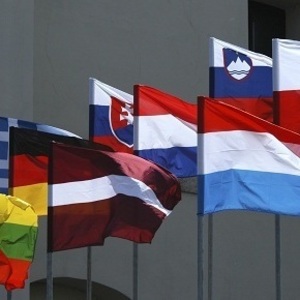EU tariff on US ethanol officially in place for five years

March 1, 2013
BY Holly Jessen
For the next five years, U.S. ethanol—and only U.S. ethanol—exported to European Union countries will be subject to an $83.03 per metric ton tariff or duty.
It’s a disappointing blow for ethanol producers like Walt Wendland, president and CEO of Golden Grain Energy LLC and Homeland Energy Solutions LLC, two Iowa ethanol plants with combined capacities of nearly 250 MMgy. The U.S. ethanol industry is fighting on multiple fronts to protect and expand its market share. “We need to do everything we can to keep our export markets open,” he said, adding that he’s confident that the industry will be successful in its fight to repeal the EU decision on the anti-dumping case. Growth Energy and the Renewable Fuels Association have pledged to challenge the decision.
The battle began in October 2011, when the European Commission initiated anti-dumping and anti-subsidy investigations. Although the anti-subsidy investigation concluded in December, without imposition of a tariff, the anti-dumping investigation had a different outcome. The EU regulation requiring the duty went into effect Feb. 23, one day after it was published in the Official Journal of the European Union.
Advertisement
Advertisement
In the course of the investigation six ethanol producers were selected as representing a sample of the ethanol industry, including Marquis Energy LLC, Patriot Renewable Fuels LLC, Platinum Ethanol LLC, Plymouth Energy Company LLC and Poet LLC. As the investigation continued, however, it was revealed that U.S. ethanol producers were not actually the exporters of ethanol. Instead ethanol traders or blenders export ethanol to the EU. “Those producers were not systematically aware whether or not their production was intended for the Union market of any other destination including the U.S. market or any knowledge of the traders/blenders sales prices,” the 19-page regulations document reveals.
The next step was to send questionnaires to the eight largest U.S. traders/blenders, two of which agreed to cooperate in the investigation. The companies exported about 51 percent of the total ethanol exported to the EU during the investigation period from Oct. 1, 2010, to Sept. 30, 2011.
It was determined that, during the investigation period, imports to the EU from the U.S. increased from 63,409 metric tons to 686,185 metric tons and the U.S. market share increased from 1.9 percent to 15.7 percent. “Although the average U.S. import prices increased by 6 percent over the period considered, prices charged by U.S. exporters were consistently lower than the average Union producers’ prices,” the regulations document said, adding that the price of U.S. ethanol undercut EU produced ethanol by an average of 5.6 percent.
Advertisement
Advertisement
Although there were positive developments for the EU ethanol industry, it was determined that imported U.S. ethanol meant the industry didn’t grow as expected. In fact, the EU producer’s market share decreased by 2.2 percent during the time period. In comparison, U.S. ethanol gained 7.2 percent market share. “In that time period, certain industry indicators pertaining to the economic situation of the Union industry improved, but the growth was not in line with the increase in consumption during the period considered and the improvements were thus not sufficient to allow the Union industry to develop its activities,” the document said, adding that EU producers were not able to charge prices that covered the cost of production of ethanol.
The investigation also examined whether the activities of Brazil, the only other country exporting ethanol to the EU, had an impact during the investigation period. Although prices for Brazilian ethanol were well below the prices of EU producers, imports from this country decreased by 81 percent and in market share by 25 percent in the time period in question. Brazilian ethanol did contribute to the injury of the EU ethanol industry, it was concluded. However, it cannot be considered a major cause due to the significant decrease in volume of Brazilian ethanol imports.
The imposition of the duty is expected to help EU production facilities increase production and allow new facilities to open, the investigation concluded. “It can be expected that the imposition of measure would also enable the Union industry to increase the sales volume and those gain the market share lost due to the presence of dumped imports,” the document said. “This in turn will have a further positive impact on its financial situation and profitability.”
Related Stories
The U.S. Energy Information Administration maintained its forecast for 2025 and 2026 biodiesel, renewable diesel and sustainable aviation fuel (SAF) production in its latest Short-Term Energy Outlook, released July 8.
XCF Global Inc. on July 10 shared its strategic plan to invest close to $1 billion in developing a network of SAF production facilities, expanding its U.S. footprint, and advancing its international growth strategy.
U.S. fuel ethanol capacity fell slightly in April, while biodiesel and renewable diesel capacity held steady, according to data released by the U.S. EIA on June 30. Feedstock consumption was down when compared to the previous month.
XCF Global Inc. on July 8 provided a production update on its flagship New Rise Reno facility, underscoring that the plant has successfully produced SAF, renewable diesel, and renewable naphtha during its initial ramp-up.
The U.S. EPA on July 8 hosted virtual public hearing to gather input on the agency’s recently released proposed rule to set 2026 and 2027 RFS RVOs. Members of the biofuel industry were among those to offer testimony during the event.
Upcoming Events










